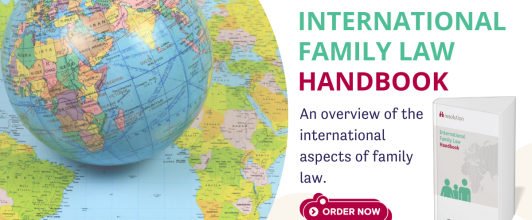
The Review
The Review is Resolution's bi-monthly magazine for members. Publishing six times a year with a mix of features, law and practice and news from the regions.
Broad range of information for professionals and practitioners in family law and justice.
Showing 241 - 260 of 518

The Review is Resolution's bi-monthly magazine for members. Publishing six times a year with a mix of features, law and practice and news from the regions.

Resonate is a new blog from Resolution, bringing together voices from across family law to share insight, experience and both personal and professional perspectives
As part of Resolution's Code of Practice members are asked to use the Good Practice Guides as part of their day to day work. These represent Resolution's core values and are designed to offer knowledge and guidance to our members.

Resolution Together is a way of working that allows lawyers to work with and advise couples jointly, including providing appropriate legal advice, through a divorce or separation.

Find resources on mediation, collaborative practice, arbitration and more.

This list of recommendations of family lawyers in other jurisdictions has been compiled by the members of Resolution's International Committee based on their working experience. The lawyers on this list are not Resolution members - unless indicated - and as such are not endorsed or recommended by Resolution.
As part of a series of articles in this issue on firm culture and personal development, a partner reflects on a large law firm’s approach, including measuring performance, support and well-being.
As well as being aware of the rising risk factors, family practitioners should be aware – and make clients aware – of the wealth of resources and support sources available.
In this section, you'll find Resolution's suite of resources for collaborative practitioners. This includes information on the scope of collaborative practice, how you become a collaborative practitioner, routes for professional development and much more.
Resolution has worked with The Law Society on a note to assist family lawyers in England and Wales ahead of the end of the Brexit transition period in relation to divorce and finance cases, and domestic abuse cases. We have also worked with the Association of Lawyers for Children on a note for children practitioners.
Comfortable chairs, birdbaths and Zoom workouts… small details create a better bigger picture
This paper sets out the responses of Resolution’s Regional Liaison Committee and Litigants in Person Committee.
Supporting litigants in person - how Support Through Court helps and how they can help you in your work.
Each month, Resolution summarises all the key developments for legal aid providers. This is the October 2020 edition.
HMCTS has revealed the most common reasons why online divorce petitions are rejected or errors are encountered. Follow these top tips to ensure your online application goes smoothly.
Resolution is pleased to make available the following suggested guidance for the conduct of a remote hearing as arbitrator or PFDR judge, authored by a distinguished panel of family law arbitrators – and including Resolution members; Nicholas Allen QC, Janet Bazley QC, Andrzej Bojarski, Nigel Dyer QC, Marina Faggionato, Charles Hale QC, Suzanne Kingston and Christopher Pocock QC.
How inclusive are you?
We talk about diversity and inclusion and we have heard it talked about a lot recently. Following the unfortunate passing of George Floyd, the world was shaken and so many wounds were reopened about racism, police brutality and the lack of diversity in certain spaces especially at senior levels.
Resolution is an organisation of 6,500 family lawyers and other family justice professionals in England and Wales, who believe in a constructive, non-confrontational approach to family law matters. Resolution also campaigns for better laws and better support for families and children undergoing family change. Our members, and the couples and families they work with, are regular users of the family courts.
With the outbreak of Covid-19 many of you will not be at your offices to receive your printed copy of The Review but help is at hand. For every issue we will be publishing the articles here in the Knowledge and Resources section of our website as well as the pdf of the printed version.
After a lengthy period in the authority desert, pensions on divorce continue to bask in the family law limelight.
In G v T Nicholas Cusworth QC, sitting as Deputy HCJ, considered the basis of company valuation and the concept of continuum versus new venture .
This extraordinary case pushed family proceedings to the limits in more ways than one.
Following on from a number of perspectives in the previous issue, how do legal and therapeutic skills best interact to ensure clients receive the correct support?
There is no decline in the rising numbers of self-litigating parties, and practitioners need to be aware of the factors – and rules - involved.